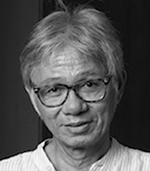

I learned from Solita Collas-Monsod’s column in the Philippine Daily Inquirer on Saturday that she had incurred some crossness for her column the week before – “Why Filipinos distrust China.”
That’s laughable.
For one thing, few opinion makers in the newspapers and on television can compare with Monsod for rigor of inquiry. Already a highly regarded academic before her enlistment in the media, she can’t help, I’d imagine, bringing down the pressure of her company on her fellows, especially those who like to shoot from the hip.
For another thing, the point on which issue has been taken with her – whether Filipinos don’t trust China – has ceased to be a matter for debate. Numerous surveys have validated it, as Monsod has pointed out. In fact, the distrust is palpable – and does China deserve it!
Still, it should be no surprise that any criticism of China provokes some denier or detractor – in Monsod’s case, it was a Caroline Hau, of the Center for Southeast Asian Studies in Kyoto University. Zealotry is a virtue promoted and cultivated by the Chinese autocracy.
Anyway, I’m here weighing in for Monsod not really with Hau or any similar lost causes in mind, but, rather, in hopes of reaching whoever may be sensible, open-minded, and sensitive enough to be interested to know why China, to which President Duterte happens to look to as a patron and protector, cannot be trusted.
If an event were to be designated in contemporary history as the one that raised the first red flag on China, that would be the 1989 massacre by its state troops of more than a thousand young democracy campaigners in Tiananmen Square. But, for closer relevance and wider familiarity to us, I have decided to limit my references to the more recent past.
Admittedly, there’s no fair comparison to be drawn between the unconscionably murderous shortcuts China's communist regime takes internally – it did not hesitate to use tanks in Tiananmen – and the more surreptitious and calculating methods by which it has conducted its external affairs. But, now the world's second biggest economy and a major power all around, China no longer hesitates to bully and cheat its way around client nations.
The use of fake or downright harmful ingredients in some of its products – lead in children’s toys, Melamine (a chemical for plastics) in infant formula, and plastic itself masquerading as rice grains – is definitely no small infraction. Being willful, it constitutes a worse case than criminal negligence, and, given China’s immense market, the potential victims are innumerable.
Furthermore, since not all Made-in-China products are labeled as such, doubtless a conscious, strategic avoidance, the customer is denied a proper first warning.
As for drugs, even if labeled, trust that Duterte, while appearing war-freakish about them, will find others to blame – users, dealers, port watchers – if they come from China.
If we haven’t yet become too drugged to sense the fatality of China’s embrace, listen to this cautionary tale. It features Kenya and Sri Lanka, easy prey to China being – like ourselves in prospect – debtors misled by their deluded or self-interested regimes. A bridge built in Kenya by Chinese engineers and funded with a Chinese loan collapsed even before it could be opened to traffic. Sri Lanka, for its part, had to “cough up” (the phrase is The New York Times’) an entire port. “The case,” says the Times, “is one of the most vivid examples of China’s ambitious use of loans and aid to gain influence around the world – and of its willingness to play hardball to collect.”
Still, Duterte doesn’t care. He even entertains Chinese companies blacklisted by the World Bank. Indeed, toward China, he is incredibly lavish with the benefit of the doubt. But, again, is anyone surprised?
One of Duterte’s first presidential acts was to surrender our western seas to China, along with their rich resources in fish and other marine life, corals, and potential minerals. That act of treason was committed soon after our rights to those seas had been affirmed by an international arbitral court.
China itself was a rival claimant to those waters and a party to the agreement providing for the arbitral proceedings, but it refused to participate in them. Plainly understandable: we had everything to show to back our claim; China had nothing.
But, of course, it has Duterte.
The tragic irony is that, as further evidence is turned up proving China’s claim fraudulent, evidence no longer necessary since we’ve got our sovereign rights, we haven’t got possession.
Now, we can’t even be left alone to our perfectly righteous feeling of distrust toward China. – Rappler.com